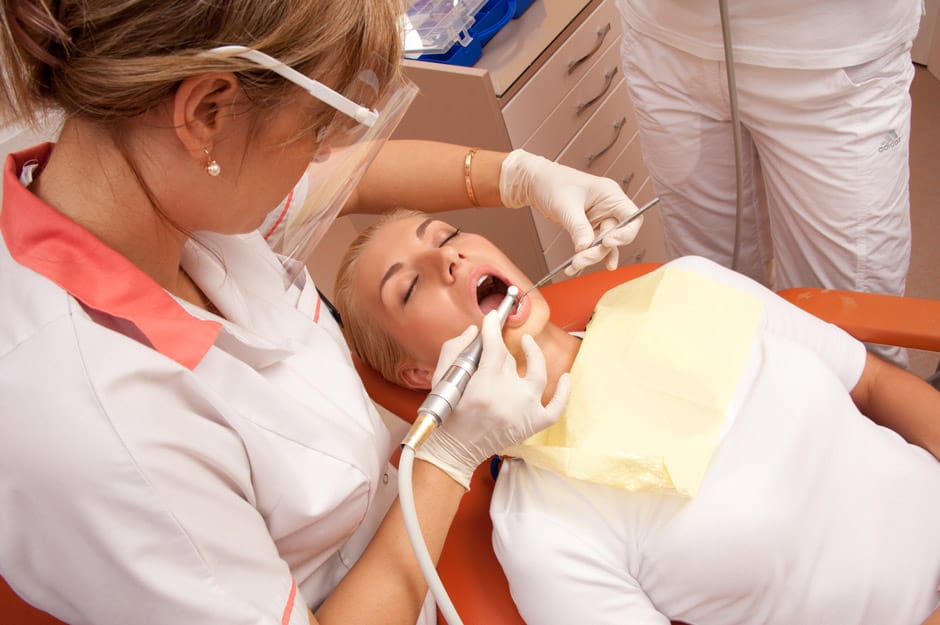How Sleep Dentistry Works and Why It's Beneficial
Sleep dentistry, also known as sedation dentistry, is a dental practice that aims to provide a relaxing and comfortable environment for patients who may experience dental phobia, anxiety, or specific needs. In this article, we will explore how sleep dentistry works and discuss the various benefits it offers. By understanding this innovative approach to dental care, individuals can make informed decisions about their oral health and seek the necessary treatment without fear or discomfort.

Understanding Sleep Dentistry
Sleep dentistry involves the use of sedatives to help patients feel calm and relaxed during dental procedures. These sedatives can range from minimal to deep sedation, depending on the patient's level of anxiety or the complexity of the procedure. The use of sedatives ensures that patients remain comfortable throughout the treatment and enables dentists to perform the necessary dental work efficiently.
The sedation methods employed in sleep dentistry include inhalation sedation, oral conscious sedation, and intravenous sedation. Inhalation sedation involves the administration of nitrous oxide, commonly known as laughing gas, combined with oxygen. This method induces a state of relaxation, reduces anxiety, and helps patients feel more at ease.
Who Can Benefit from Sleep Dentistry?
A. Individuals with dental phobia or anxiety
Many people experience dental phobia or anxiety, often stemming from past negative experiences or fear of pain. This can prevent individuals from seeking the necessary dental treatment, which can lead to deteriorating oral health. Sleep dentistry https://www.rockinghamdental.net/news/exploring-the-advantages-of-sleep-dentistry/ provides a solution for these patients, as the sedatives allow them to overcome their fears and receive the care they need without distress.
B. People with a low pain threshold
Patients with a low pain threshold may find it challenging to undergo dental procedures without experiencing significant discomfort. Sleep dentistry addresses this issue by ensuring patients are relaxed and pain-free during treatment, allowing the dentist to work more efficiently and effectively.
C. Patients with a sensitive gag reflex
For individuals with a sensitive gag reflex, dental procedures can be particularly challenging. Sleep dentistry can help manage this issue by reducing the gag reflex and enabling patients to go through dental treatments without discomfort.
D. People with lots of dental work to be done
Patients requiring extensive dental work often face the dilemma of undergoing lengthy procedures, which can be physically and mentally exhausting. Sleep dentistry allows for more work to be done in a single visit, thanks to the increased relaxation and reduced anxiety provided by sedation. This not only saves time but also minimizes the overall number of dental visits required.
E. Kids who are afraid of dental visits or cannot cooperate
Children can often feel anxious or afraid of dental visits, making it challenging for dentists to provide the necessary care. Sleep dentistry offers a solution by ensuring children are calm and relaxed during procedures, allowing for a more successful and comfortable dental experience.

The Benefits of Sleep Dentistry
A. Reduced fear and anxiety
One of the significant benefits of sleep dentistry is its ability to reduce fear and anxiety associated with dental visits. By providing patients with sedation, sleep dentistry creates a relaxed and comfortable atmosphere, allowing individuals to overcome their fears and seek the necessary dental treatment without distress.
B. Provides comfort during dental procedures
Sleep dentistry prioritizes patient comfort, ensuring individuals remain relaxed and pain-free during dental procedures. The sedatives used in sleep dentistry induce a state of deep relaxation, allowing dentists to perform the required treatment with minimal discomfort for the patient.
C. It allows for more work to be done in fewer visits
For patients requiring extensive dental work, sleep dentistry offers the advantage of accomplishing more in fewer visits. By providing relaxation and reducing anxiety, sedation enables dentists to work more efficiently and complete multiple procedures in a single visit. This saves patients time, reduces the need for multiple appointments, and expedites the overall treatment process.
D. Perfect for patients with special needs
Patients with special needs, such as those with physical or mental disabilities, can often struggle with traditional dental procedures. Sleep dentistry provides a suitable solution by offering a peaceful and relaxed environment for these individuals. The sedation allows dentists to work without any potential challenges or resistance from the patient, ensuring their oral health needs are met effectively.
Conclusion
Sleep dentistry offers a valuable solution for individuals who experience dental phobia and anxiety or have specific needs that make traditional dental procedures challenging. By providing relaxation and comfort through the use of sedatives, sleep dentistry allows patients to overcome their fears and receive the necessary dental treatment without distress. The benefits of sleep dentistry extend beyond reducing anxiety; it also provides comfort during procedures, allows for more efficient work, and is particularly beneficial for patients with special needs. With sleep dentistry, individuals can prioritize their oral health without compromising their well-being.
